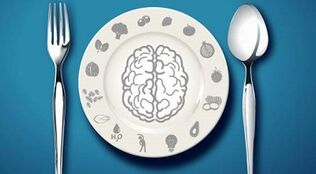Experts say that the amount of memory is limitless. But we do not always use it correctly. Mechanical memorization, which is practiced in educational institutions, is not an ideal method for improving memory. It consists of three components: natural potential, condition and fitness. This means that memory is susceptible to influence, and today there are many ways to improve it.
Reasons for deterioration

The following factors lead to memory impairment:
- emotional stress;
- systematic depression;
- lack of sleep;
- infectious diseases;
- vitamin deficiency;
- drinking alcoholic beverages;
- smoking;
- brain injury;
- taking medications (antidepressants, sleeping pills);
- diseases: atherosclerosis, thyroid dysfunction, multiple sclerosis, diabetes mellitus;
- aging of the body.
Strengthening memory at home
The brain is a dynamic structure that reacts to any influence. The right approach will help you achieve the desired result. Today, a sufficient number of techniques have been developed to improve memory.
Exercises
- Let's start our discussion of this method with an exercise called "associations". An assistant is required for implementation. Ask him to read aloud several pairs of words that have a semantic connection with each other. For example, “notebook - pen”, “winter - snow”, “book - study”. Your task is to memorize the maximum number of words. Then the assistant must read the first words, the second must be reproduced independently.
- The second exercise is to improve your visual imagination. You need to close your eyes and imagine in detail any object, natural phenomenon or animal. It can be an oasis in the middle of the desert, a cat drinking milk, lightning in the sky. A wide variety of options are possible. Next, take a sheet of paper and describe the presented images on it in reverse order.
- The third exercise is to improve your listening and remembering information. Someone needs to read a set of words aloud. For example, “table, sky, computer, elephant, autumn, river, tree”. Repeat these words first in the same order, then in the opposite direction. If there is no one around, you can do the exercise yourself. To do this, you should take a book and read aloud the first words of each line.
- The fourth exercise will give you the opportunity to train your memory and simultaneously do household chores. Before going to the store, write a list of the products you need to purchase on the sheet. Read it several times. You can do this out loud or silently, as you like. Then leave the leaf at home and go to the store without it. Repeat this exercise every time you need to shop.
- Exercises aimed at activating the cerebral hemispheres will also help to improve memory. The simplest of these is changing hands when performing an action. For example, comb your hair or hold the cup with your left hand (if you are left-handed, then with your right). You can also do walking on site. It is necessary to perform the exercise at a fast pace. When lowering the knee, a wave of the hand is made so that it rises above the head. The exercise should be repeated several times.

Games
Cards are laid face down in a row on the table. Several people can take part in the game. Each in turn turns over any two cards. If they match, the participant takes them.
Playing with questions will also help train your memory. The topic does not matter. Each player asks the rest of the participants any questions. For a correct answer, five points are added, for an erroneous one, two points are deducted. Solving crosswords will help to achieve tangible results.
Menu for strengthening memory
Memory status depends on the diet. Certain foods are the source of the substances the body needs:
- Bananas provide the body with amino acids (carotene, methionine, tryptophan), easily digestible carbohydrates, vitamins PP, B1, B2.
- Sprouted grains contain elements that provide energy to the brain and normalize its function. These are selenium, copper, iron, zinc, calcium, potassium, magnesium, phosphorus. Vitamins B9, B6, B5, B3, B2, B1.
- Eggs are rich in amino acids. They contain glutamic acid, methionine, cysteine, tryptophan, lysine. Also vitamins A, B2, B1, PP. They supply protein to the body that is easily absorbed.
- Honey is a source of carbohydrates. They can replace sugar. In its composition, honey contains well-absorbed glucose and fructose. And also 22 of the 24 trace elements found in the circulatory system.
- Fish - salmon, trout, salmon, herring. The consumption of these products will replenish the content of the essential Omega 3 acid, a deficiency of which causes degenerative diseases of the brain. This element has a direct impact on the development of intelligence, memory and cognitive functions.
- Avocado improves the blood supply to the brain due to the presence of unsaturated fatty acids and minerals.
- Dark chocolate contains flavonol, an element that prevents brain oxidation and normalizes blood circulation. Cocoa destroys substances that contribute to the formation of blood clots.
- Apples inhibit oxidative stress that can lead to memory loss.
- Tomatoes contain lycopene, a powerful antioxidant that destroys free radicals (substances that negatively affect the brain). Melatonin, which is also found in this product, will help slow down aging.
- Walnuts containing lecithin have a positive effect on the brain by normalizing its activity. They also prevent premature aging. To feel the desired effect, it is enough to eat 5 nuts a day.
- A handful of pumpkin seeds will provide the body with a daily requirement of zinc.
- Wild berries blueberries and currants are rich in vitamin C. Lemon also has this feature.
- Tea has tonic properties. Contains caffeine and antioxidants to enhance cognition. L-theanine relieves emotional stress.

The brain needs carbohydrates, proteins, fats, vitamins and amino acids to function properly.
Introducing a salad made from the following ingredients into the diet will help maintain memory:
- carrots;
- beets;
- half a celery root;
- parsley;
- 3 tablespoons of vegetable oil;
- half a lemon.
Grate the ingredients on a coarse grater, season with oil, pour over with lemon juice and salt a little. Then stir the salad well and enjoy the healthy, tasty food.
Poems and music

Another effective way to help develop memory is memorizing poetry. There are several guidelines to achieve the desired result:
- Learn by stanzas, not by lines. Many people make this mistake. If you repeat one line many times and then move on to another, you end up getting confused in the stanza. Short-term memory is able to perceive approximately 7 blocks. In order not to overload it, you need to divide the verse into the same number of parts. Do 5 seconds between blocks.
- First read the entire poem 2-3 times. At the same time, try to visualize the plot of the work. Now read again and you will find that you have already memorized some lines. In this way we try to learn the whole verse.
- Don't use quatrains to teach him. The work will fall into fragments, and it will be problematic to reproduce it completely.
Listening to music is also one of the methods for improving memory. But these must be classical pieces. Music creates vibrations in the air that promote relaxation and have a positive effect on the brain. The works of Wolfgang Amadeus Mozart, Johann Sebastian Bach, Georg Friedrich Handel possess this ability.
Other ways
Lead an active lifestyle, exercise and go for a walk in the fresh air. During physical activity, the body releases hormones that improve brain function. Walking will help fill it with oxygen. For brain cells to regenerate, you need to get enough sleep. The lack of rest is immediately reflected in the state of health.
The efficiency of the brain increases during the deep sleep stage.

Stress is a direct danger to memory. It has a devastating effect on brain cells and the hippocampus, the area responsible for creating new memories and reproducing old ones. Therefore, it is necessary to fight with it. This can be done with the help of physical exercises, during which the release of endorphin - the hormone of joy - occurs.
Drawing and reading are some of the techniques for balancing the emotional state. Picturing negative emotions on paper allows you to look at the problem from the outside. In the process of reading, attention is transferred to the plot of the book. This relieves psychological stress.
There are also recommendations for improving memory in traditional medicine. Let's look at a few recipes:
- Grate horseradish root and 3 lemons. Add 3 tablespoons of honey to the resulting mass. Refrigerate for 3 weeks. Take 1 teaspoon twice daily with meals.
- 10 g of ginger, pour 250 ml of boiling water, add mint and lemon balm. Drink 1-2 cups a day.
- Pour 1 tablespoon of mint and a similar amount of sage with two glasses of boiled water. Insist for 12 hours. Then strain and take 50 ml 4 times a day, half an hour before meals.
- Pour 250 ml of water over 1 tablespoon of mountain ash bark and boil for 10 minutes. The mixture should be infused for 6 hours, then strain it and take 1 spoonful three times a day. The duration of the course is 3-4 weeks.
It is possible to influence the state of memory with the help of medication.
If this is your choice, don't self-medicate. Medication is taken only after consulting a doctor.
Express Methods
If you need to quickly fix something in memory, simple exercises will help:

- Concentrate first. Concentrate and direct it to what needs to be remembered. Don't let your attention shift to other objects.
- The next step is to create associations. Associate the object you are trying to remember with something. Here you can fully rely on imagination.
- Now let's move on to the third stage. The association should be repeated several times. This method will help you remember any event or information without rote memorization.
If you are unsure of your ability to concentrate, try the following exercise:
- First, inhale deeply and hold the air for five seconds. In this case, the palms need to be clenched into a fist.
- Then slowly exhale and open your hands.
- After this exercise you will feel relaxed, it will improve your concentration.
A familiar object should be used when creating associations. Memory activity is arranged in such a way that the best result is achieved if new facts are added to the experienced sensations and feelings.
Many people are familiar with the situation when at the right moment the memory starts to fail. It's not just older people who face this. Anyone can master the methods to improve the ability to memorize. For a better result, an integrated approach is recommended. You will feel the effect already at the beginning of classes.






































































